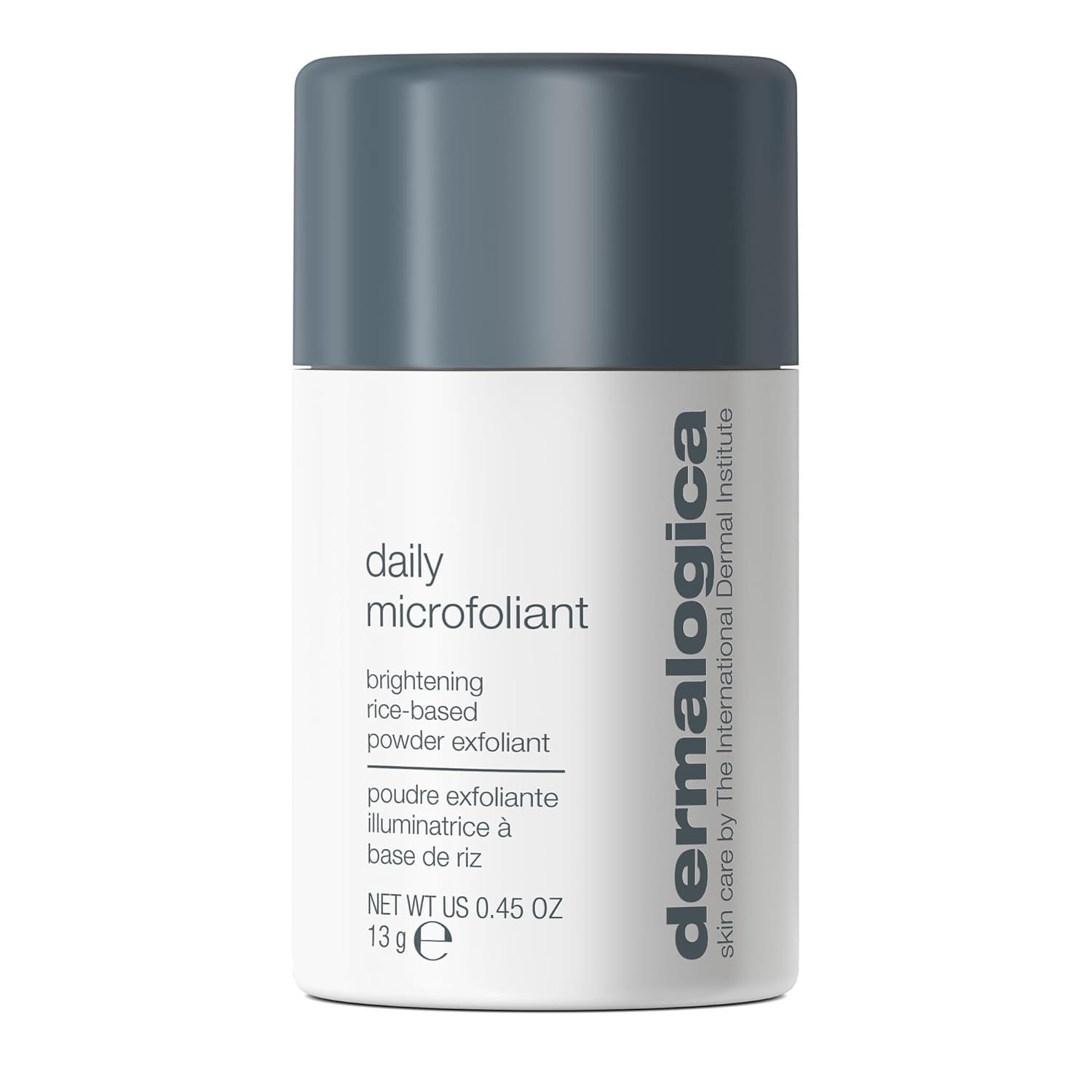








Price: $19.00
(as of Apr 10, 2025 15:03:04 UTC - Details)
The Best Exfoliator for Face: A Comprehensive Guide
Introduction
Finding the best exfoliator for your face can be a game-changer in your skincare routine. Exfoliation is essential for removing dead skin cells, unclogging pores, and promoting a radiant complexion. If you’re on the hunt for the perfect product, you’ve come to the right place. In this article, we’ll explore various types of exfoliators, their benefits, and how to choose the right one for your skin type. Whether you’re looking for a gentle scrub or a powerful chemical exfoliant, we’ve got you covered.
Understanding Exfoliation
What is Exfoliation?
Exfoliation is the process of removing the outer layer of dead skin cells. This not only helps improve the skin's texture but also enhances the effectiveness of other skincare products. Regular exfoliation can lead to a brighter, smoother complexion.
Why Is Exfoliation Important?
Exfoliation is crucial for several reasons. It helps prevent clogged pores, reduces the appearance of fine lines and wrinkles, and promotes faster skin cell turnover. By incorporating exfoliation into your routine, you can achieve healthier, more youthful skin.
Types of Exfoliators
Physical Exfoliators
Physical exfoliators, or scrubs, contain small particles that manually slough off dead skin. They can be made from natural ingredients like sugar or coffee grounds, or synthetic materials. If you're looking for an effective physical exfoliator, consider those with fine granules to avoid micro-tears in your skin.
Benefits of Physical Exfoliators:
- Immediate results with smoother skin.
- Can be customized based on your skin's sensitivity.
Best Practices:
- Use 1-2 times a week.
- Avoid scrubs with large, harsh particles.
Chemical Exfoliators
Chemical exfoliators use acids or enzymes to dissolve dead skin cells. Common ingredients include alpha hydroxy acids (AHAs) and beta hydroxy acids (BHAs). AHAs like glycolic acid are great for dry skin, while BHAs like salicylic acid work well for oily or acne-prone skin.
Benefits of Chemical Exfoliators:
- Penetrate deeper into the skin.
- Provide long-term results with regular use.
Best Practices:
- Start with a lower concentration to see how your skin reacts.
- Follow up with sunscreen, as chemical exfoliators can increase sun sensitivity.
How to Choose the Best Exfoliator for Your Skin Type
Oily Skin
If you have oily skin, look for exfoliators containing salicylic acid. This ingredient helps control excess oil while unclogging pores. A gel-based exfoliator can also provide a refreshing feel and effectively remove dead skin without adding extra moisture.
Dry Skin
For those with dry skin, AHAs like lactic acid can be beneficial. They not only exfoliate but also hydrate your skin. Creamy exfoliators that contain moisturizing ingredients can help prevent further dryness.
Sensitive Skin
Sensitive skin requires a gentle approach. Look for exfoliators with soothing ingredients like chamomile or aloe vera. Avoid harsh scrubs and opt for mild chemical exfoliants that are fragrance-free.
Combination Skin
If you have combination skin, you might want to alternate between physical and chemical exfoliators. A gentle scrub can work wonders on drier areas, while a BHA can help manage oilier sections of your face.
Tips for Effective Exfoliation
Frequency
Exfoliation frequency depends on your skin type. Oily skin can benefit from 2-3 times a week, while dry or sensitive skin may only need once a week. Listen to your skin and adjust accordingly.
Application
Always apply your exfoliator on clean, dry skin. If you’re using a physical scrub, massage it gently in circular motions to avoid irritation. For chemical exfoliators, follow the manufacturer’s instructions for application and leave-on time.
Follow Up
After exfoliating, always follow up with a good moisturizer. This helps lock in hydration and replenish your skin after the exfoliation process. Additionally, using sunscreen is crucial, especially if you’ve used a chemical exfoliant.
Popular Exfoliator Recommendations
Top Physical Exfoliators
-
St. Ives Fresh Skin Apricot Scrub: A classic choice with natural ingredients that gently exfoliate without being too harsh.
- Dermalogica Daily Microfoliant: A unique rice-based powder that activates upon contact with water, offering a gentle yet effective exfoliation.
Top Chemical Exfoliators
-
Paula’s Choice Skin Perfecting 2% BHA Liquid Exfoliant: Known for its ability to clear pores and reduce blackheads, great for oily skin.
- The Ordinary Glycolic Acid 7% Toning Solution: An affordable option that provides excellent exfoliation and brightening effects.
Conclusion
In conclusion, finding the best exfoliator for your face is essential for maintaining healthy and radiant skin. Whether you choose a physical or chemical exfoliant, understanding your skin type and following best practices can lead to fantastic results. Remember, regular exfoliation can help improve texture, minimize pores, and give you that coveted glow. Happy exfoliating!
